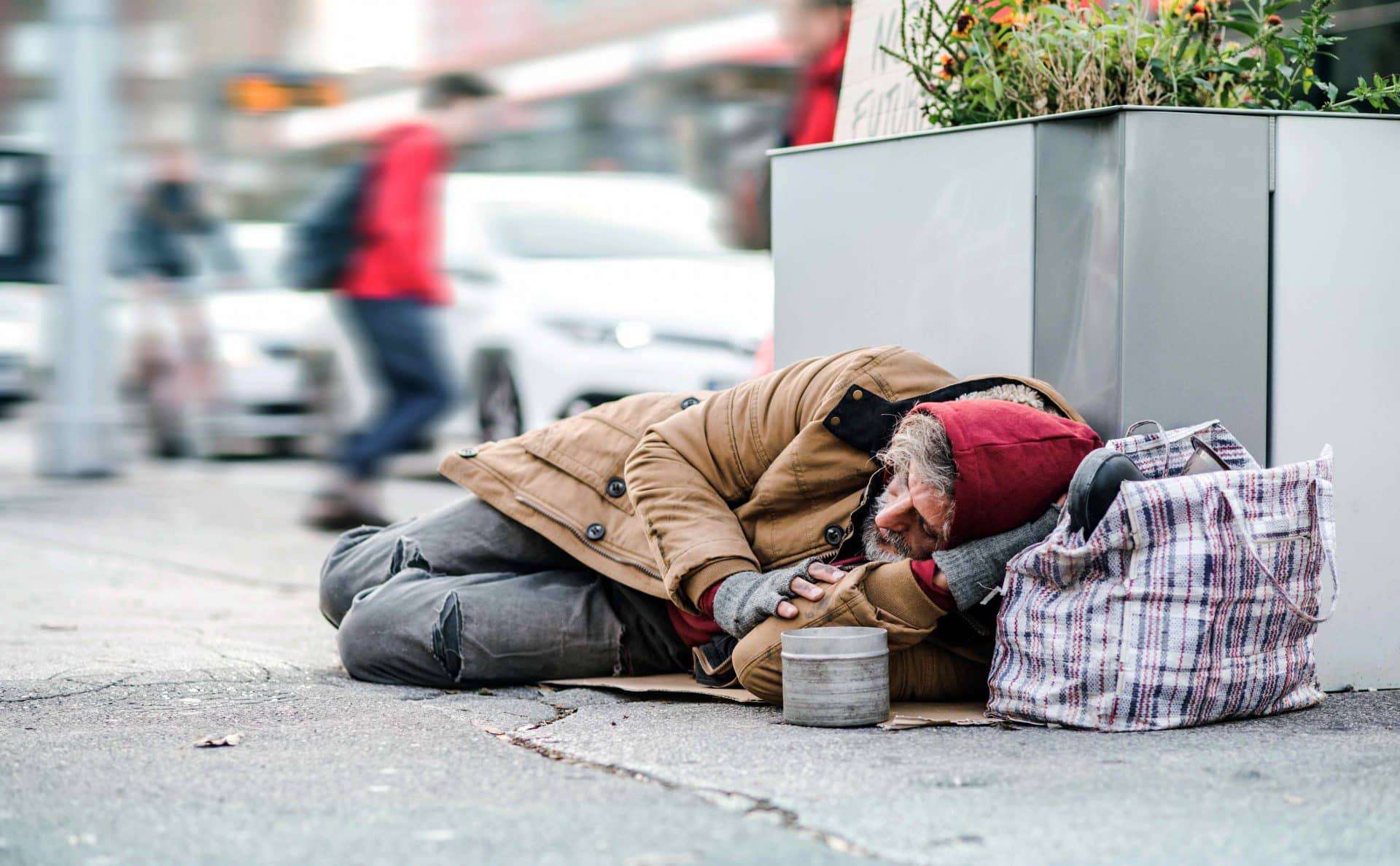What is Poverty?
by CAPP-USA

What is poverty? What are the types of poverty?
The Definition of Poverty
The Holy Fathers do much to ensure our understanding of “who is poor” and “what is poverty” avoid a one-dimensional focus.
Poverty is not just material. It is also moral and spiritual. Poverty is an affront to human dignity, and so the Church has always taught a preferential option for the poor.
A preferential option for the poor “demands before all else an appreciation of the immense dignity of the poor”. (Pope Francis, 158)
As Pope St. John Paul II taught, “it is well known that there are many other forms of poverty, especially in modern society – not only economic but cultural and spiritual poverty as well.” (Centesimus Annus, 57)
“It is not possible to understand man on the basis of economics alone”. (Centesimus Annus, 24)
Material Poverty
Material poverty “affects those living in conditions opposed to human dignity: those who lack basic rights and needs such as food, water, hygiene, work and the opportunity to develop and grow culturally”. (Pope Francis, 2)
“What are less than human conditions? The material poverty of those who lack the bare necessities of life, and the moral poverty of those who are crushed under the weight of their own self-love” (Pope St. Paul VI, 21)
Moral Poverty
Moral poverty is much worse because it entails a situation “without faith, without support, without hope:” (Message for Lent, 2014, 2)
It “consists in slavery to vice and sin“. (Pope Francis, 2)
“Contemporary culture seems to have lost the sense of good and evil“. (Pope Benedict XVI, 1)
Spiritual Poverty
This last type of poverty may be the worst. We experience spiritual poverty “when we turn away from God and reject his love. If we think we don’t need God…we are headed for a fall. God alone can truly save and free us.” (Pope Francis, 2)
While “Man needs to be liberated from material oppressions…more profoundly he must be saved from the evils that afflict the spirit.” (Pope Benedict XVI)
Pope Francis brings it home when he teaches, “there is only one real kind of poverty: not living as children of God and brothers and sisters of Christ.” (2014 Lenten Message, 1)
All forms of poverty require and deserve a “preferential option”.
What do We do “Practically” about Poverty?
In the US, there are populations that live without water, food, housing, but many more still that lack “the opportunity to develop and grow culturally”. (Pope Francis, 2) They live with rampant drug use, crime, poor education, collapsed family structures, and sexual exploitation.
While economic aid is needed, focusing only on economic responses (earned income tax credits, minimum wage, etc.) will not cure this ill because, “Of itself, an economic system does not possess criteria for correctly distinguishing new and higher forms of satisfying human needs from artificial new needs.” (Pope St. John Paul II, 36)
“This time of crisis” is “a human crisis: it is the human person that is in crisis! Man himself is in danger of being destroyed!” (Pope Francis)
We must go deeper because “In the last analysis” our problems “are to be found in a current self-centered and materialistic way of thinking that fails to acknowledge the limitations inherent in every creature”. (Pope Benedict XVI)
“Without God man neither knows which way to go nor even understands who he is”! (Pope Benedict XVI, 78)
The “ideological rejection of God and an atheism of indifference, oblivious to the Creator and at risk of becoming equally oblivious to human values, constitute some of the chief obstacles to development today.” (Pope Benedict XVI, 78)
The Social Responsibilities of the ‘Haves’ toward the ‘Have Nots’ — in all Three Areas
“It is all men who are called to further the development of human society as a whole.”(Pope St. Paul VI, 17) But, some shoulder greater responsibility: “To whom much is given, much is expected“. (Luke 12:48)
“Those who are more influential, because they have a greater share of goods and common services, should feel responsible for the weaker and be ready to share with them”. (Pope St. John Paul II, 39)
It must be reiterated that “the more fortunate should renounce some of their rights so as to place their goods more generously at the service of others”. (Pope Francis, 190)





